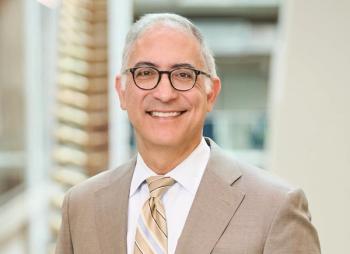
Many Americans leery of AI in healthcare
A solid majority said they would feel uncomfortable if doctors were relying on artificial intelligence for a diagnosis. Some see the potential for greater health equity.
Many healthcare leaders have predicted that artificial intelligence could change patient care, but many Americans appear to have misgivings.
Six out of ten Americans (60%) said they would be uncomfortable if their doctor used AI in diagnosis of a disease or in developing a plan for treatment, according to a
Most of those surveyed said they aren’t convinced AI can lead to better outcomes. Only 38% of respondents said using AI would lead to a better outcome, while 33% said AI would lead to a worse outcome, and 27% said there would be no difference. The remaining respondents (2%) had no answer.
Three out of four Americans (75%) said they are more concerned that healthcare providers will move ahead with AI too quickly without weighing the risks to patients. Conversely, 23% said they were worried that the health industry would proceed too slowly.
Patients seem to have a strong desire for a human touch from their healthcare provider and are worried about losing it. More than half (57%) said doctors choosing to use AI in a diagnosis or treatment plan would worsen the patient-provider relationship, while only 13% said it would improve.
Some have concerns about the security of their health information. The poll found 37% said using AI in healthcare would weaken the security of their data, while only 22% said it would improve security.
However, the poll revealed that some viewed potential benefits of AI in healthcare.
Some said AI could lead to greater accuracy in healthcare. The survey found that 40% of respondents said using AI would reduce the number of mistakes by healthcare providers, while 27% disagreed.
Some also see AI as a potential tool for improving health equity. Among those who see bias in healthcare delivery, 51% said the problem of unfair treatment would improve with the use of AI in diagnosis and treatment, while 15% said it would get worse.
While there has been much discussion about AI’s potential to transform healthcare, Stephen Parodi, executive vice president of The Permanente Federation, said in a
Researchers and healthcare leaders have said AI offers great potential in examining patients and determining potential risks for complications.
Researchers at Johns Hopkins University say they have used AI to detect








































